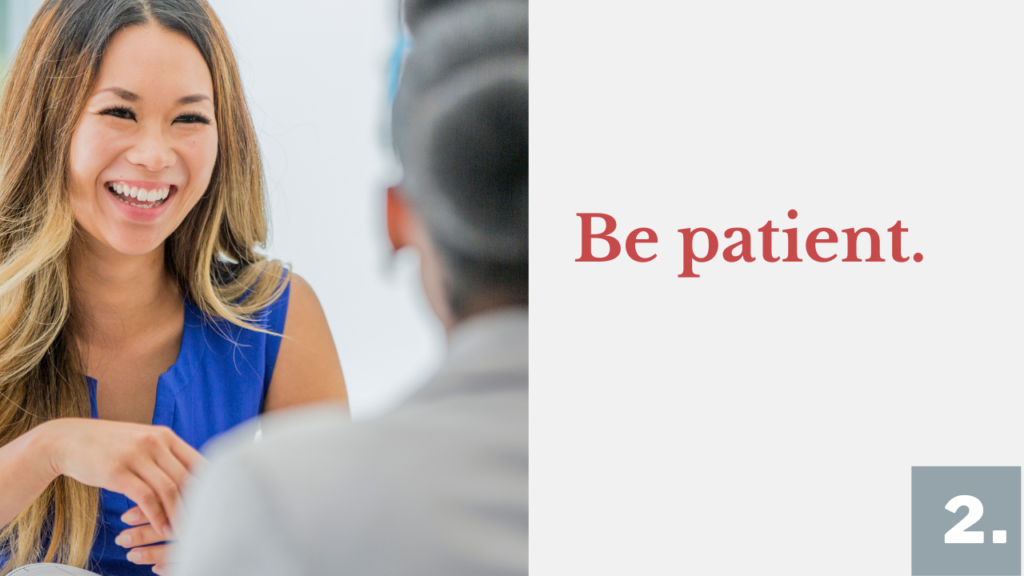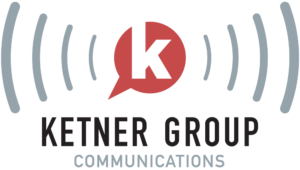Our president Catherine Seeds has worked in public relations for many years and one of her favorite parts of the job is building long-term relationships with reporters. Those looking to build their own long-term relationships should check out her latest audio clip, which shares top tips for media relations. Can’t catch the video or prefer to read? We’ve included a transcription of her recommendations below.
Build long-term relationships with reporters:
If you are in PR, then you know how hard it can be, especially in today’s media landscape, to get in front of key media contacts in a meaningful way. Hi, I’m Catherine Seeds, president of Ketner Group Communications and I’m so glad you are listening in. Today, we are going to talk about building long-term relationships with reporters.
Let’s get to it!
So, I like to think of relationships with reporters as a marriage. What do the best marriages consist of you ask? Well, a lot, lol! Relationships are not always easy and they take work, but when you and your partner get it right – it can result in something extremely special. The same goes with your relationships with journalists!
Let’s talk four easy things you can do to create a lasting rapport with a reporter:

1. Be a good listener (aka research!):
This is one of the first things we all learn as PR practitioners. When we think about listening to journalists, this means really understanding what topics they are most interested in and what is going to get their attention. Listening is all about doing your homework on the journalist, reading their previous articles, knowing how they prefer to be contacted and understanding their passions as writers. You can’t possibly expect to build a relationship with an editor or reporter if you don’t LISTEN to the things that are important to them.
Listening and identifying what will make a journalist think “this PR person gets me” could be, as Humphrey Bogart says in the movie classic Casablanca, “the beginning of a beautiful friendship.”

2. Be patient:
Once you’ve done your homework, listened and established a connection with a journalist – that does not mean you or your client will grace the top fold of the Wall Street Journal right away. Patience, especially in today’s very competitive media landscape, is critical to long-term PR success. As Mahatma Gandhi once said, “To lose patience is to lose the battle.” But that does not mean you have to sit back and wait for things to happen.
As our friends at Muckrack recently wrote, as a PR professional, you need to remember that you are planting seeds – not shot-gunning beers. Having a quality relationship with a reporter does not mean only reaching out to them when you need something – it means putting in the work and planning for the long game to achieve optimum results.
Make it a practice each week or month to simply engage with those reporters that are most important to you. Send them a nice note about a recent article they’ve written, give them a shout out on social media or offer to meet them for coffee to catch up. They key here is to keep developing that relationship while also staying top of mind with the reporter the next time they write about a topic that could be a fit for your client.

3. Be relevant:
As PR pros, it is our job to stay on top of breaking news, relevant topics and differentiated points of view. In short, you need to do what you can to make a journalist’s life a little bit easier!
When pitching a journalist, it is important to bring fresh ideas to the table! In Cision’s “2021 Global State of the Media” report, one of the important key takeaways is to be a trendsetter. In the report, Cision reminds us that “journalists are looking for stories that speak to what’s happening in the world right now, so the better you are at delivering stories with timely narratives, the more of an asset you will be. Sage advice indeed!
Once you’ve secured an interview, make sure you or your client continues to bring their A game to the table with valuable information, such as:
- What does this news mean for your customers and the industry, and why should the journalist’s audience care?
- What is one key thing that (your customer or industry watchers) should consider or think about as they are digesting this news?
- How can you or your company provide further analysis and a point of view for this news? Do you have unique data to highlight the story, or can you point to outliers or differentiators in the story?
In short, think like a journalist would, and not just what is important to you or your client.

4. Be human:
At the end of the day, it is important to remember that journalists are people, too. They have the same worries, fears, joys, anger, wants and needs as we do.
Journalists are pressed for time more than ever before, and they do not need PR people following up repeatedly on a pitch, especially, if it is not something they are interested in. (Remember, be a good listener!) According to the same Cision report I cited earlier, nearly three in 10 journalists say they never want follow up at all, while many want at least two days to look over a pitch first.
No one appreciates getting annoying emails that are not relevant to us, and journalists are no different. Be human, be kind and be thoughtful when it comes to communication with the media – it will be a win-win for everyone if you do!
There are many other ways to develop long-term relationships with journalists, but the most important thing to remember is approaching it like you would any other relationship. Build trust, create thoughtful communication and above all, be helpful.
Keep the conversation going:
For more tips and advice on building relationships with the media, please visit our blog. Are you Interested in doing more with your media relations strategy? We’d love to see how we can help jump-start your activities and support you for the long-haul. Email us at [email protected]
Until next time, work hard – play hard – and be nice to people!

